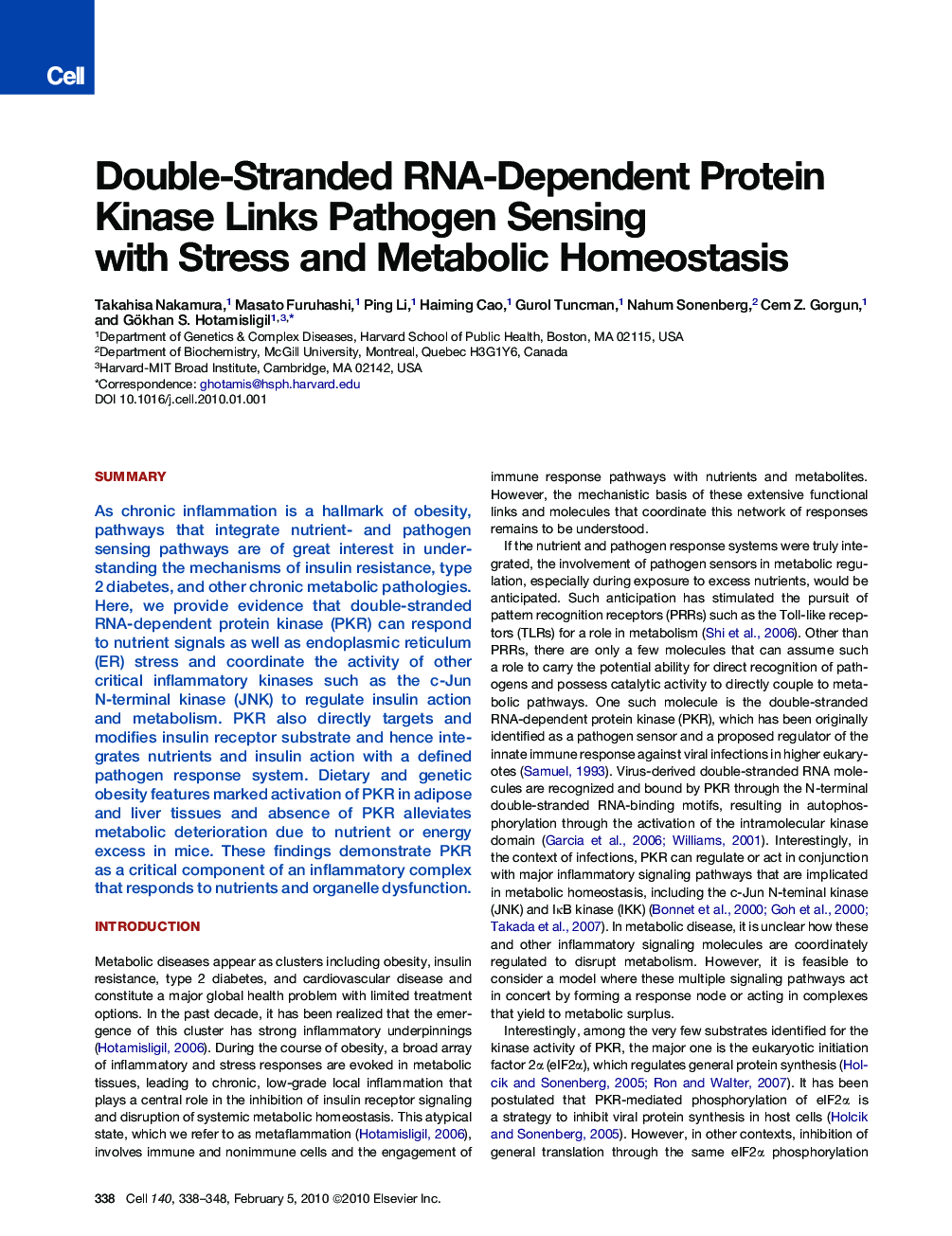| Article ID | Journal | Published Year | Pages | File Type |
|---|---|---|---|---|
| 2037141 | Cell | 2010 | 11 Pages |
SummaryAs chronic inflammation is a hallmark of obesity, pathways that integrate nutrient- and pathogen sensing pathways are of great interest in understanding the mechanisms of insulin resistance, type 2 diabetes, and other chronic metabolic pathologies. Here, we provide evidence that double-stranded RNA-dependent protein kinase (PKR) can respond to nutrient signals as well as endoplasmic reticulum (ER) stress and coordinate the activity of other critical inflammatory kinases such as the c-Jun N-terminal kinase (JNK) to regulate insulin action and metabolism. PKR also directly targets and modifies insulin receptor substrate and hence integrates nutrients and insulin action with a defined pathogen response system. Dietary and genetic obesity features marked activation of PKR in adipose and liver tissues and absence of PKR alleviates metabolic deterioration due to nutrient or energy excess in mice. These findings demonstrate PKR as a critical component of an inflammatory complex that responds to nutrients and organelle dysfunction.
Graphical AbstractFigure optionsDownload full-size imageDownload high-quality image (222 K)Download as PowerPoint slideHighlights► Double-stranded RNA-dependent protein kinase (PKR) activity is elevated in obese mice ► Excess nutrients and endoplasmic reticulum stress also activate PKR ► JNK activation and inhibition of insulin signaling due to metabolic stress require PKR ► Lack of PKR prevents insulin resistance and metabolic dysfunction in obesity
